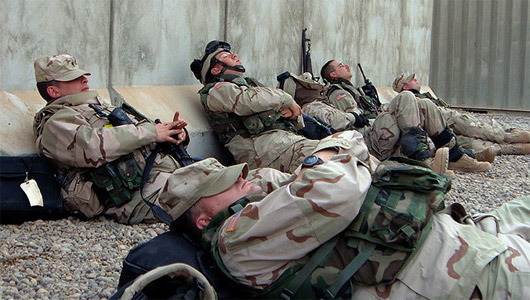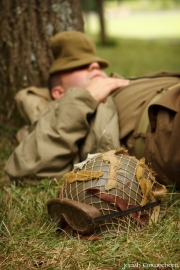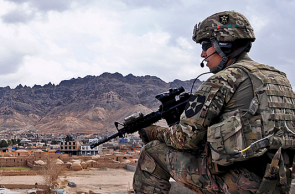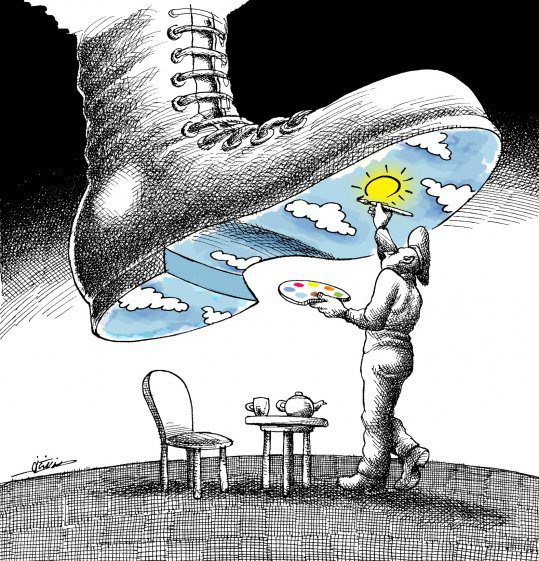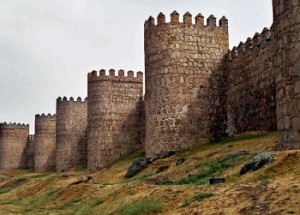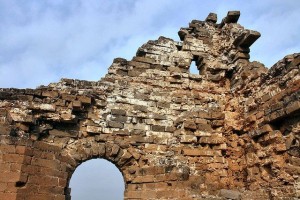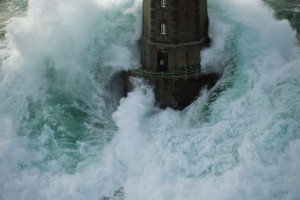3 | Lack Nothing
(Four Ways to Be Easily Conquered, Pt. 4)
Prosperity seems to be an advantage, but in fact, it may be the very thing that keeps us unprepared for attack.
Disproportionately Blessed
It certainly made Laish unprepared for the Danite assault. We are told twice that Laish lacked nothing and was prosperous (Judges 18:7, 10), no surprise because of its ideal location.
The city was situated perfectly at the foot of Mt. Lebanon and the Hermon mountains, whose melting snow provided the majority of the water for the Jordan River. This made Laish uniquely lush and fertile in an otherwise arid region.
Also, they had apparently faced little or no mistreatment since another way to translate the Hebrew phrase for “lacked nothing,” is, “no oppressive authorities taxing them.”
No doubt, this city–like many people–seemed disproportionately blessed.
The Misfortune of the Fortunate
How could such prosperity be a bad thing? I can think of two reasons.
1 | Wealth becomes a target on the wealthy person’s back.
 People who are perceived to be more privileged evoke the envy of others who feel unfairly deprived, making them targets of hostility or theft.
People who are perceived to be more privileged evoke the envy of others who feel unfairly deprived, making them targets of hostility or theft.
Wealth may have the advantage of providing for greater safety measures–high-tech home and car security systems, insurance on expensive possessions, living in gated communities, etc.–but a disadvantage of wealth is that it makes such measures necessary.
Proverbs 13:8, says, “The ransom of a man’s life is his wealth, but the poor hears no rebuke” (NASB).
The Amplified Bible expounds,
“A rich man can buy his way out of threatened death by paying a ransom, but the poor man does not even have to listen to threats [from the envious].”
Whether wanted or not, prosperity naturally calls attention to a person, making them the object of admiration to some and a more compelling target to others.
Including spiritual foes. If Job was singled out by Satan because he was so fortunate and untouched by hardship, we too may expect to be harassed for our good fortune.
2 | A person who lacks nothing becomes dependent on having everything.
 The longer we live in prosperity, the more it becomes our norm. Before long, having everything feels so normal that it feels necessary.
The longer we live in prosperity, the more it becomes our norm. Before long, having everything feels so normal that it feels necessary.
When something is taken away, we panic at the thought of living without it, even if it is something many people easily live without. Maybe even something we ourselves were previously content living without.
This is true for me and cell phones.
I did’t have a cell phone until I was a junior in college, and I didn’t have a smartphone until four years ago (2011). Before that, I lived actively and even did youth ministry without a phone with internet, GPS, texting, camera, cloud storage, etc.
 Now I shudder to think of having even one of those functions taken away, much less trying to live without any cell phone at all.
Now I shudder to think of having even one of those functions taken away, much less trying to live without any cell phone at all.
The more we have, the more we require to “survive” and the greater our shock when we are forced to go without.
Boot Camp
Misfortune can be good for us, then…so good, in fact, that we should intentionally inflict hardship on ourselves if we hope to overcome difficult challenges that will inevitably befall us.
Our success in battle depends on how we train in boot camp.
In boot camp, if soldiers “lacked nothing,” it would be quite a shock to them in combat when they have to live on very little and they’re under attack.
Training conditions should mimic actual battle conditions so there is familiarity, not shock, when suddenly forced into the discomfort, deprivation and danger of battle!
Soldiers can withstand, even succeed in, the worst battle conditions because they have trained themselves NOT to be dependent on favorable conditions or good treatment to do their jobs.
Maybe the Monks are On to Something
We can do this ourselves with a practice called “fasting.”
Many believe fasting to be an antiquated discipline practiced only by extreme pious nuts in monasteries. It seems outdated and irrelevant for modern disciples, but I believe fasting is needed now more than ever.
If we are not careful, the attitude of entitlement will infect our minds.
It is an epidemic in the American church, if not globally. Many Christians feel entitled to a certain level of comfort, prosperity and protection. When these expectations are not met, when hardship comes, they are easily conquered by discouragement, despair, bitterness toward God, compromise, or maybe even all-out surrender and defection.
Fasting is our way to practice having nothing so we will be prepared for times when we indeed have nothing.
Essentially, fasting is merely voluntarily removing something we have come to depend on for fulfillment other than Jesus.
We can fast from food, of course, or maybe a particular food/type of food (sweets; Starbucks; a “Daniel Fast” of only fruits, nuts, and vegetables; etc.).
Some fast from a certain activity that has, or could, become too important to their happiness.
Couples can agree to fast from sex for a spiritual purpose (I Corinthians 7:5).
Many modern “fasters” have chosen to challenge themselves by abstaining from digital entertainment and/or social media for a time.
A person might even fast from money, determining what income is absolutely mandatory and choosing to give away everything over that for a certain amount of time. This benefits the people, families, churches or organizations they give to and allows the person to practice finding contentment on a tighter budget.
What to fast from is different for each person. To determine what would have the greatest impact for you, evaluate (honestly!) what would be hardest to give up.
Coffee? Netflix? Sex? Facebook? Dating? ESPN? Extra spending money?
Whatever you would be most defensive about giving up if someone suggested it is probably the thing you benefit most to fast from.
I know what it is for me. What is it for you?
Enough Prayer
To paraphrase someone much smarter than me, it is in times when God is all we have that we discover God is all we need.
Do you want that kind of unshakable faith?
Do you want to be able to say, as Paul said, “I have learned the secret of being content in any and every situation, whether well fed or hungry, whether living in plenty or in want” (Philippians 4:12)?
Then rather than praying for prosperity, pray simply for “enough,” and nothing more.
Proverbs 30:8 is the Enough Prayer:
“Give me neither poverty nor riches, but give me only my daily bread.
Otherwise, I may have too much and disown You and say, ‘Who is the Lord?’
Or I may become poor and steal and so dishonor the name of my God.”
May the Lord use both blessing and hardship to train you so you will be successful under any and every type of combat conditions.



